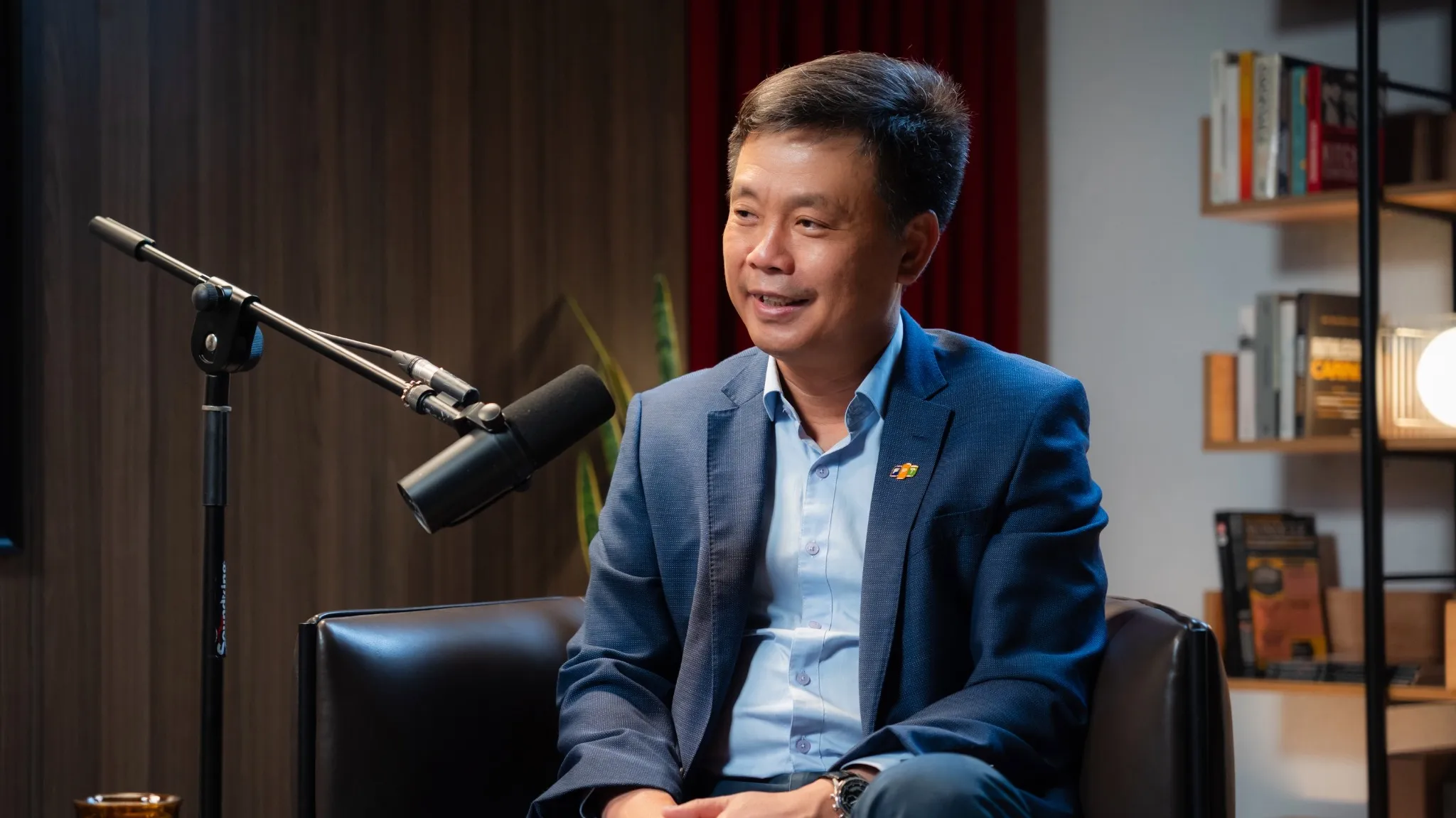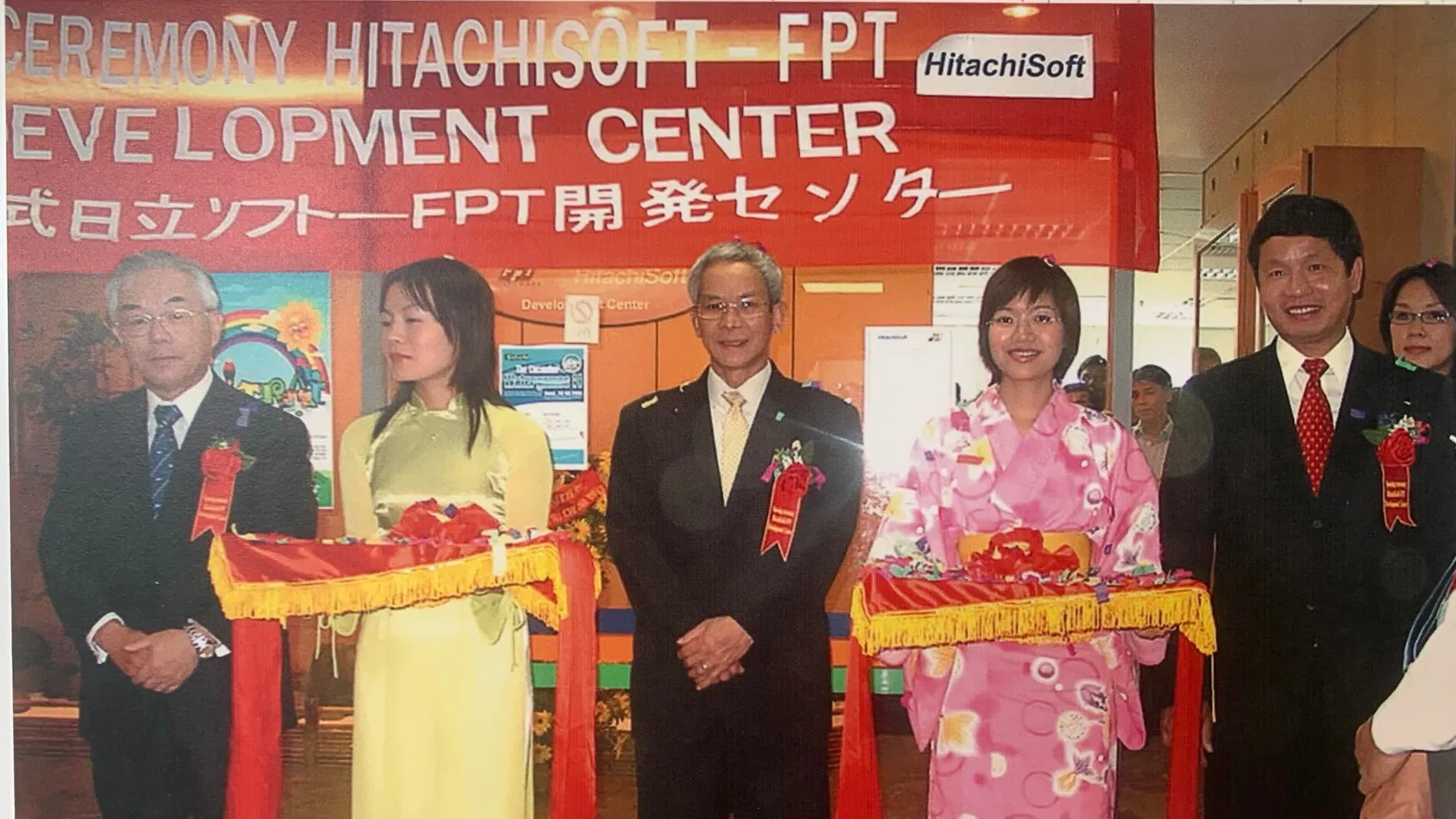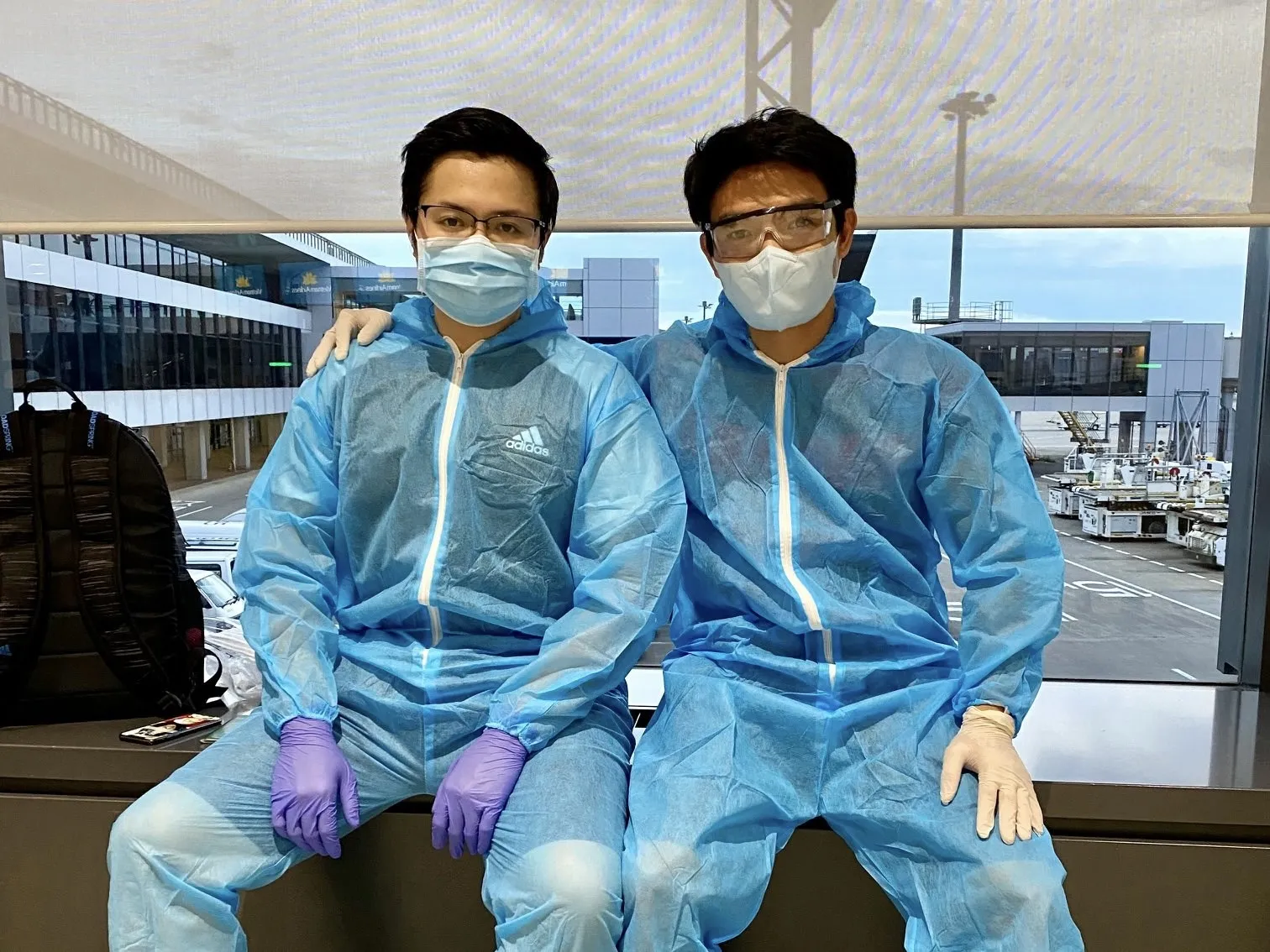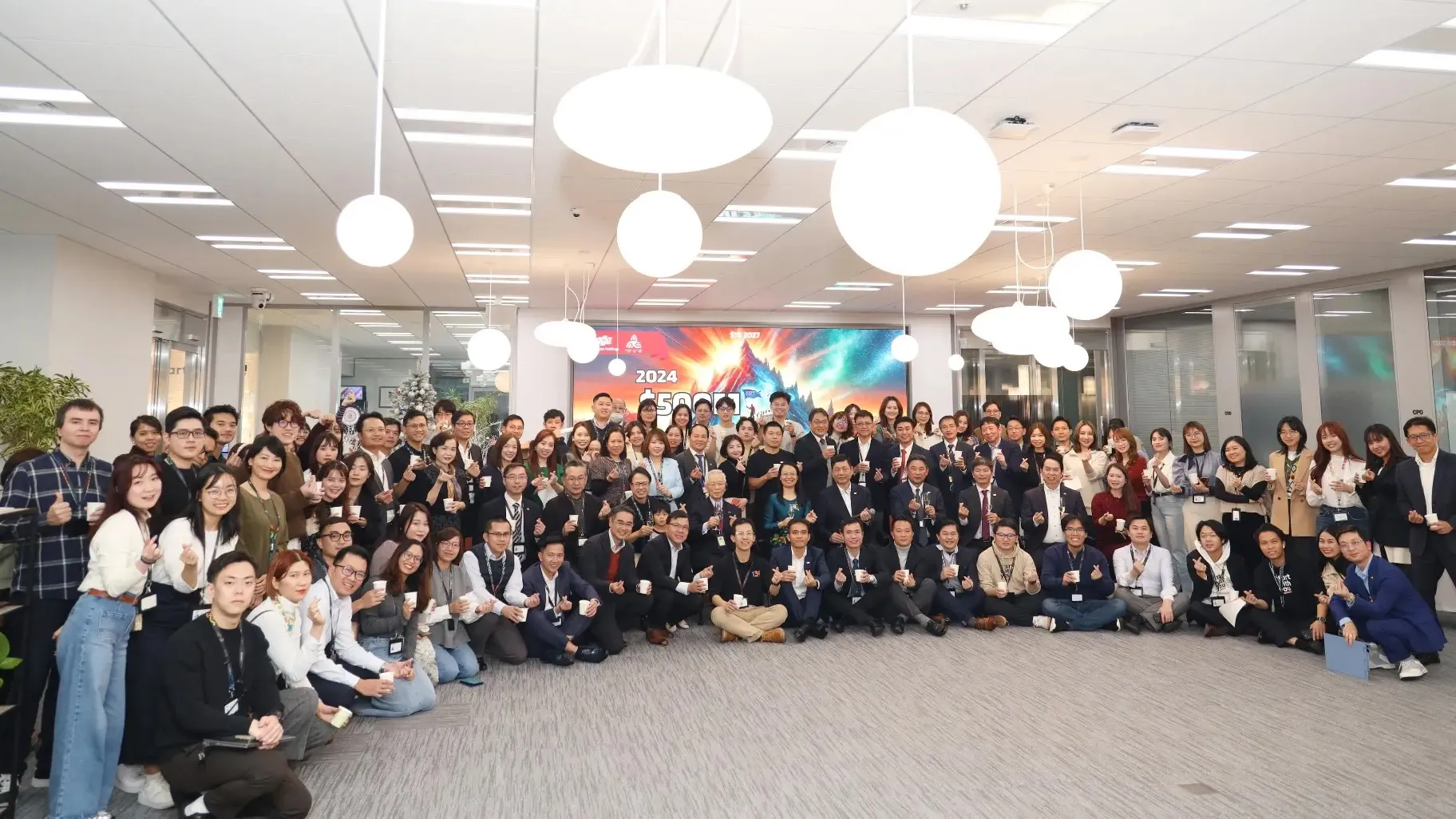From modest beginnings since Vietnam’s post-war period, FPT has risen to become among the country’s most valuable publicly traded technology firms. In the global IT services sector, FPT now serves more than 1,100 clients worldwide, including over 130 Fortune Global 500 companies. Steering this transformation is Pham Minh Tuan, FPT Executive Vice President and FPT Software CEO, who has witnessed the evolution from a traditional outsourcing provider to an AI-first global contender.
In a conversation with Vietcetera for its special podcast edition commemorating Vietnam’s 80th Independence Day, he reflects on FPT’s expansion along with Vietnam’s transformation and the country’s ambition to become a major force on the world stage.

Pham Minh Tuan (R) and host Tu An (L) in Vietnam Innovators Digest Podcast’s special edition
Learning from the World
In the late 1990s, FPT sought to export software, inspired by India’s outsourcing boom. A trip to India offered a sobering lesson. “We thought we could just show up and find clients,” Tuan recalls. “Instead, we learned by observing how India built its industry from scratch and applied those lessons at home.”
FPT absorbed the intricacies of international business before venturing abroad. Success in technology wasn’t just about coding; it demanded understanding clients, markets, and cultures. This culture of experimentation and adaptation became the foundation for its global expansion.

Tuan held the position of Chief Technology Officer (CTO) of FPT in India in 1999
Resilience: The Driving Force of Success
Resilience has defined FPT since its earliest ventures abroad. The company’s breakthrough in Japan after India and the United States came through grit and cultural ingenuity. To bridge cultural and linguistic barriers, the company introduced the concept “comtor” - specialized IT interpreters who served as vital bridges between project teams and clients. “We had nothing to offer except our youth and ambition,” Tuan recalls. “But that was enough to win their trust.”

FPT’s partnership with Hitachi, established in 2003, laid the foundation for its success in Japan.
That spirit endured through disasters. In 2011, when the Tōhoku earthquake and tsunami struck Japan, most foreign firms evacuated, yet FPT did the opposite. FPT Chairman Truong Gia Binh flew in with supplies to support the staff and clients. Staff were given the option to return home, yet 199 of 200 chose to stay. “In adversity, you know who your true friends are,” Tuan says. “After that, that trust was passed on by word of mouth, and then FPT's business in Japan took off,” he continues.
A decade later, the pandemic tested the company again. Just as the world locked down, FPT secured its first USD 100 million contract with a U.S. automotive giant. As the client recognized the efficiency of vendor consolidation, FPT seized the chance to establish itself as a champion partner, selected among the top three from over 200. Employees volunteered to fly on one-way tickets, uncertain when they would return, carrying a mission larger than themselves. “The people who went to the U.S. had the same mindset as those who went to Japan years ago; they were all in on the mission to bring Vietnamese intelligence abroad,” Tuan says. “They wanted to prove themselves and showcase Vietnam’s capabilities globally.”
 FPT’s team departed for the U.S. during COVID-19 to take on one of FPT’s largest projects then
FPT’s team departed for the U.S. during COVID-19 to take on one of FPT’s largest projects then
Building a Global Contender: Inside FPT’s Strategy for the Next Frontier
Resilience alone does not explain FPT’s sustained rise. Ambition has been a driving force. “The hunger to prove ourselves is not only at the leadership level, it’s in every employee,” Tuan emphasizes. This collective drive enables FPT to tackle daunting challenges and win client trust.
Strategic balance has been equally important. Its “three-prong” approach, referring to strong bases in Japan, the U.S., and Asia-Pacific, with Europe emerging, protects the company from shocks and allows talent to rotate across regions. “If someone struggles in one market, we give them another chance elsewhere,” Tuan explains. “That rotation keeps the fire alive even after decades.”
Scale has also fueled growth. Over five years, average deal sizes have grown tenfold, with 80% of revenue now coming from million-dollar clients, including global leaders in automotive, energy, and manufacturing. Vendor consolidation has further accelerated this momentum, as clients sought fewer but deeper partnerships. FPT became not just an IT provider but a strategic partner for enterprises worldwide.

Board of Management of FPT Software, FPT Corporation, celebrated exceeding $1 billion in revenue in 2023
Workforce development has also been central to FPT’s growth. The company is fostering a diverse talent pool by combining Vietnamese resilience and youthful energy with international expertise, and is on track to grow its foreign workforce to 20%. This goal is backed by FPT’s own education systems, which consist of five private university campuses with over 150,000 students.
Founded in 2006, FPT University has since then played a vital role in cultivating high-quality human resources for Vietnam, as well as addressing workforce demands from other FPT subsidiaries. As the corporation shifted its focus toward emerging sectors such as AI, automotive, and semiconductors, it also launched specialized training programs in these fields, ensuring that technology enhancements go hand in hand with talent development.

FPT nurtures a future-ready talent pipeline and a happy work environment
All these drivers converge on one goal: world-class status. “Being number one in Vietnam is never enough,” Tuan insists. “Our goal is to compete head-to-head on billion-dollar projects.”

FPT celebrated 500 million USD in revenue from the Japanese market in 2024
AI as a Gateway to More Billion-Dollar Milestones
Today, FPT’s ambitions stretch beyond single contracts or markets. The company has set its sights on 5 GIGA - achieving five multi-billion-dollar targets from a single market, a single vertical industry, a single contract, a single customer, and from its profits. Tuan highlights that these goals are not just about revenue; they reflect FPT’s global standing and Vietnam’s rising profile in technology.
To achieve these targets, FPT has made big bets on AI. “If we only grew steadily, from USD 100 million to USD 1 billion, it would take too long,” Tuan says. AI compresses timelines, enabling faster scaling while keeping FPT’s workforce young and dynamic. Across the company, every project, process, and solution starts with the question: how can AI help solve this problem? AI amplifies human intelligence, freeing employees to focus on creativity, strategy, and building client relationships.

FPT launched 2 AI Factories in Vietnam and Japan in 2024, powered by a partner ecosystem of leading technology organizations, including NVIDIA, SCSK, ASUS, and HP Enterprise
As an AI-first company, FPT embeds this technology across all solutions. Its AI Factories in Vietnam and Japan, built in partnership with NVIDIA, have been recognized among the world’s fastest supercomputers and have been providing the computing backbone for large-scale adoption, compressing months of work into days. This August, the company also introduced FleziPT, a proprietary AI platform designed to empower enterprises with flexible, end-to-end transformation capabilities.
AI is not just external but embedded in FPT’s culture: FPT’s CodeVista, an AI coding tool, helps over 10,000 developers boost productivity by up to 50%, while Maya, an AI HR assistant, supports 35,000 employees. Every department builds AI agents, and all employees undergo AI training. Beyond the corporate level, FPT aligns with national ambition, pledging to upskill 500,000 people in AI and extending the technology into critical industries, such as automotive, financial services, healthcare, and energy.
Propelling Vietnam's Stature on the World Stage
FPT’s journey embodies resilience, ambition, and national pride. “Vietnam has gone through so many wars that resilience is in our DNA. Every crisis becomes an opportunity to reach a new peak,” Tuan reflects. Each obstacle overcome and each milestone proves that Vietnamese intelligence can stand shoulder to shoulder with the world’s best.

HOLA Park - FPT’s green and modern campus in Hanoi, Vietnam
“The mission of FPT is to be a pioneer and to lead Vietnam’s IT industry to become an AI powerhouse in the international technology market,” Tuan states. More than a corporate ambition, this mirrors Vietnam’s national strategy for an AI-driven future, positioning both FPT and the country as leaders in the digital economy.

Vietnamese Party General Secretary To Lam and Prime Minister Pham Minh Chinh at FPT’s booth at the 2025 National Conference on Science, Technology, and Digital Transformation. Here, FPT announced 8 strategic priorities to advance Vietnam’s digital transformation.
While Vietnam’s largest cities, Hanoi and Ho Chi Minh City, have established their strong position as global tech hubs, FPT is setting its sights on developing tier-2 cities such as Da Nang, Nha Trang, Quy Nhon, and Can Tho into the next chosen destinations for business and technology collaborations. It is confident in achieving this goal with ongoing efforts in technology enhancement, workforce development, education, and global partnerships.

FPT customers and partners visited Hope School in Da Nang - FPT's initiative aimed at supporting children who lost their parents due to the COVID-19 pandemic
Tuan concludes, “Every crisis is a chance for us to level up. In peaceful times, latecomers like Vietnam cannot catch up. But in turbulence, we thrive.” His words distill decades of lived experience into a call to action for the next generation: to see opportunity where others see risk, and to carry forward the mission of proving that Vietnam can champion in the international arena.







































